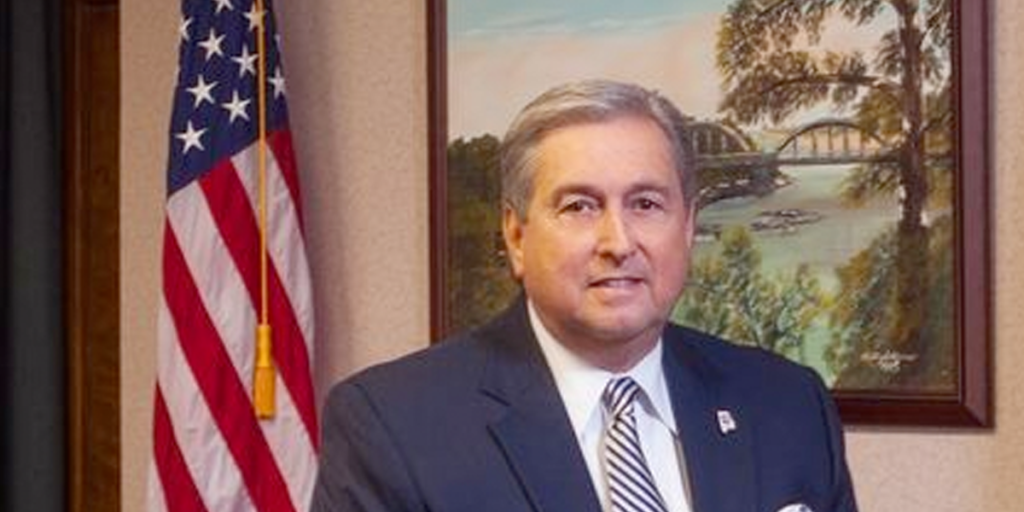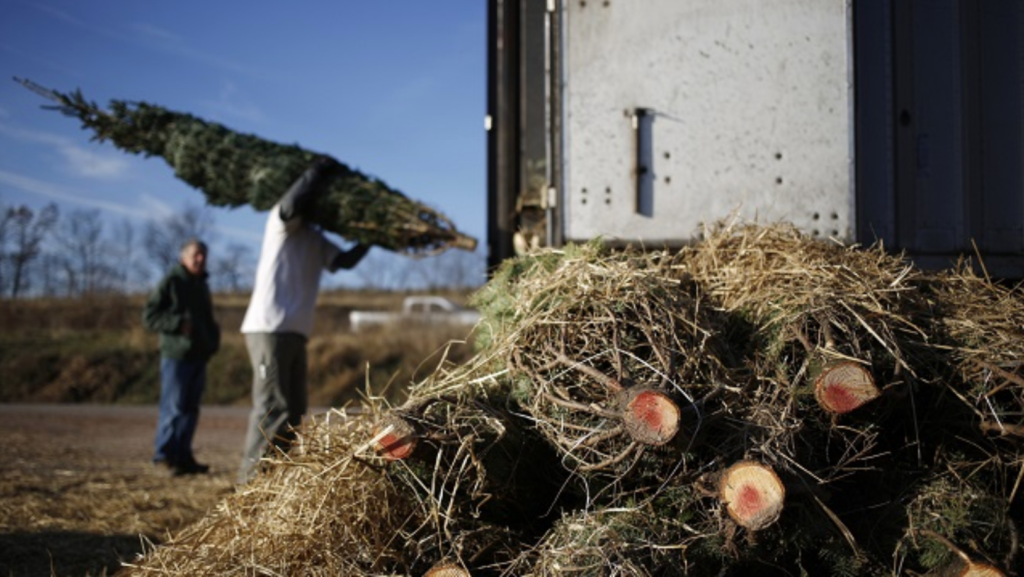Wetumpka mayor rescinds resignation after Kay Ivey rescinds state appointment

On Monday night, Wetumpka Mayor Jerry Willis announced his resignation in front of a large crowd during a Wetumpka City Council Meeting. Less than 24 hours later, he rescinded his resignation. Willis’ initial decision to resign was due his appointment to serve as Executive Director to Alabama Board of Cosmetology and Barbering made by Gov. Kay Ivey. But according to WFSA, Ivey rescinded her appointment on Tuesday “stating Willis failed to disclose a legal matter while being considering” for the position. “Anyone seeking to serve in the Ivey Administration must be transparent,“ Ivey’s told WFSA in a written statement. “During the appointment process, Mayor Willis failed to disclose an important, and significant, legal matter which has now come to my attention.” Willis in turn rescinded his resignation as Wetumpka mayor. The City of Wetumpka released a statement Tuesday evening addressing the situation. “After further consideration, Mayor Willis is withdrawing the informal conditional resignation that was previously announced,” the statement read. “Mayor Willis has reconsidered and does not intend to submit a formal resignation. As per the handbook for Mayors and Councilmembers… a contingent resignation (or one effective on a given date) can be withdrawn at any time prior to the effective date or its acceptance by the council, whichever comes first. Neither such contingencies have occurred.” Wilis was elected to his third term as mayor in November 2016. He had applied to Executive Director of the Alabama Board of Cosmetology and Barbering having worked 50 years in the cosmetology and barbering industry.
House passes Trump tax cuts; Alabama delegation splits on party lines

The House on Tuesday approved the most sweeping federal tax overhaul since 1986. The bill, which lowers income tax rates for families and businesses while closing special interest loopholes, passed by a 227-203 margin along party lines with all but one member of the Alabama delegation voting in favor of it. The Tax Cuts and Jobs Act now awaits final passage by the Senate, which is expected later Tuesday. Here’s what the Alabama delegation had to say about their votes: Alabama 1st District U.S. Rep. Bradley Byrne: Today, we are giving the American people a huge Christmas present: lower taxes, a stronger economy, and more money in their pockets. This historic vote will pave the way for more jobs and bigger paychecks for families in Southwest Alabama and across the United States. A lot of hard work and countless hours went into making today’s vote possible, and I appreciate all those who had a hand in this historic moment. Here in the People’s House, we will continue to pursue policies that ease the burden of the federal government and make life better for American families. Alabama 2nd District U.S. Rep. Martha Roby: The Tax Cuts and Jobs Act is a once-in-a-generation opportunity to reduce the tax burden on American families and grow our economy – and I’m glad we could deliver,” Roby said. “Under this legislation, a median income American family will get a tax cut of approximately $2,100 not just one year, but annually. It’s their money to begin with, and I believe families know how to spend it better than the government does. I look forward to the Senate swiftly passing this bill and the President signing it into law. Alabama 3rd District U.S. Rep. Mike Rogers: After over 30 years, the day has finally come for this historic tax legislation to simplify our broken tax code. I was pleased the bill passed the House today with my strong support and look forward to seeing the relief it brings to hard-working families across East Alabama and America. The legislation will let Americans keep more of their hard-earned paychecks, will lower the corporate tax rate to make American businesses more competitive and will increase the Child Tax Credit. The bill also eliminates Obamacare’s individual mandate so that families can have more freedom in their health care decisions. Alabama 4th District U.S. Rep. Robert Aderholt This afternoon, I voted in the House of Representatives, to give back more money to Alabama taxpayers. Far too many of the people in Washington believe that the government should have a right to a high percentage of everything you earn. Those people are wrong. It is your money, and you should be able to keep even more of it. “This tax bill does the right thing. It doubles the child tax credit. It doubles the standard deduction. It keeps medical deductions and mortgage deductions, and more than 80% of the people in the 4th District of Alabama will receive a tax cut. This is also a jobs bill. By lowering the corporate tax rate, businesses are no longer rewarded for moving their businesses and jobs overseas where tax rates are cheaper. Our cumbersome, 20th Century tax code desperately needed updating. This bill achieves that goal. Alabama 5th District U.S. Rep. Mo Brooks: America faces a dangerous $20 trillion national debt and an unending string of $1 trillion/year deficits starting in just four years. Economic growth is critical to avoid a national debilitating insolvency and bankruptcy that could destroy an American economy it took our ancestors centuries to build. The Tax Cuts and Jobs Act cuts corporate and pass-through tax rates, allows full and immediate expensing of new equipment, and encourages companies to bring back overseas profits needed to spur investment in factories and jobs in America. Overall, these tax reforms make American job-creators more competitive in a cut-throat international marketplace, thereby protecting and creating even more jobs and bigger paychecks for struggling American families. Alabama 6th District U.S. Rep. Gary Palmer: The Tax Cuts and Jobs Act will provide a much needed tax break for hardworking Americans for the first time in 31 years. Our tax plan not only puts more money in the pockets of the American people, but will also launch economic growth. Over the previous eight years our economy only grew at an anemic 1.8 percent per year because businesses were shackled by a complicated and burdensome tax code that was designed for a 1986 economy. The tax reform bill the House just passed removes the shackles and brings our tax code up to date with today’s economy and with American families and workers. Alabama 7th District U.S. Rep. Terri Sewell: The GOP tax bill that passed the House today is a giveaway for the wealthy paid for by America’s working families,” said Rep. Sewell. “Real tax reform should put working families first, make our workforce more competitive, and it should simplify the tax code in a fiscally responsible way. Today’s tax bill does the opposite. In Alabama, the bill will give the richest one percent a $4,450 tax cut, while the bottom 80 percent will see a $117 tax increase. In total it will increase taxes for an estimated 545,000 working families in Alabama. This bill is a raw deal for working families, and it cannot in good conscience be called tax reform. I am deeply disappointed that Republicans threw away this opportunity for bipartisan cooperation.”
Doug Jones already helping national Dems’ fundraising efforts

Less than a week after scoring an upset victory in the U.S. Senate race in Alabama, Democrat Doug Jones is already at work repaying the Democratic Party for campaigning on his behalf. On Tuesday, the Senator-elect sent an email to former Vice President Joe Biden‘s own political action committee (PAC) to help raise funds that will be dispensed to Democratic candidates in 2018. The group, “American Possibilities PAC” is capitalizing on Jones’ victory, which has motivated Dems across the country to open their wallets to help take back the U.S. Senate and whittle down the GOP’s power in the House. Read Jones’ full email below: Just about 41 years ago, while I was a law student, I had the opportunity to introduce a U.S. Senator who’d traveled down to our school to give a speech. His name was Joe Biden. Since that moment, I’ve had the pleasure of calling him my friend. And a week ago today, after the people of Alabama turned out to vote and I learned that I would be our state’s next senator, he was one of the first people who called me. I have to tell you, when I first took that stage after having been declared Senator-Elect, I almost didn’t know what the hell to say. But I found my words, and I sure have them now. Thank you. Thank you to my wife. My family. Thank you to the millions of Alabamians who believed in me enough to give that most sacred gesture of confidence our democracy guarantees us: A vote. Thank you to my friends — both those I’ve met on the trail these past months, and old friends, too, like Joe. And thank you, Apryl Marie. Thank you for letting Joe know that you believed in me. That you wanted your donations to help support our campaign. Thank you. The work you do here, with Joe Biden, matters. When you speak up, when you share the local leaders that you believe in — not only does this outfit hear that feedback, they listen to it. They make decisions based on what you say. I’ll tell you, that’s not how most political organizations work in this country. But it should be. So, let’s keep going. Keep speaking up. Keep talking to your friends, your family, your neighbors, about the qualities you’d like to see in a new wave of American leadership. And, if you can, give to the organization that’s going to continue to work to change the face of leadership all around this country — city by city, district by district, and state by state. I have always believed that the people of Alabama have more in common than what divides us. Last Tuesday proves it. It will be one of the greatest honors of my life to represent the people of Alabama in the United States Senate. Thank you. Let’s go do some work. -Doug
Senate confirms Alabama-native Paul Compton as HUD’s General Counsel

Monday night, by a vote of 62 to 34, the U.S. Senate confirmed Alabama-native Paul Compton, Jr. to be the next General Counsel of the Department of Housing and Urban Development (HUD). HUD Secretary Ben Carson welcomed the Senate’s action and said it comes at a critical time as the Department prepares to support the long-term recovery efforts following Hurricanes Harvey, Irma and Maria and other natural disasters that have affected the country. “Paul’s extensive background in real estate and housing finance will be a tremendous asset to this Department as we continue to support our nation’s housing markets and our state and local partners recovering from recent disasters,” said Carson. “I look forward to adding Paul’s expertise to our highly experienced senior team.” A former partner of the Birmingham-based law firm of Bradley Arant Boult Cummings, LLP, Compton is listed by Chambers USA as one of America’s leading business lawyers on issues related to banking, finance and regulatory matters. He has vast legal expertise in the areas of multifamily affordable housing finance, tax credit transactions and residential mortgage securitization and has also served as a legal advisor to the Alabama Affordable Housing Association (AAHA), a trade organization for developers, property managers, lenders, investors and service providers for affordable housing.
Christmas tree growers battle against popularity of plastic

Millennials have earned a reputation for loving consumer products that are local and artisanal. So why are they buying so many plastic Christmas trees? That’s the question irking Tim O’Connor, the executive director of the Christmas Tree Promotion Board in Littleton, Colorado. To help capture more buyers, growers are positioning themselves as analogs to the local and organic food movement. Real trees have all the things younger adults are drawn to, he said, touting authenticity, benefits to the environment and support for regional economies. They’ve got their work cut out for them. While almost 95 million U.S. households will display a Christmas tree this season, only 19 percent of those are expected to be real, according to a survey conducted by Nielsen for the American Christmas Tree Association released earlier this month. While some houses display both types of trees, most will be putting up artificial trees, usually made from plastic and sometimes coming from factories located across the globe. The tide could already be starting to change, according to George Richardson, the co-owner of Richardson Farms in Spring Grove, Illinois, who’s a fifth-generation farmer. He plants 10,000 seedlings a year on his operation, where buyers can choose and cut their own tree. “Real Christmas trees were immensely popular in 40s 50s 60s 70s 80s, and then the fake trees got in,” Richardson said. “For a while, people thought, this is so convenient, let’s do that. Now we’re finding out that maybe they’re not the healthiest, pristine thing we thought they were, and they’ll end up in a landfill.” Empty-nesters The best customers of real trees are families with children. Older adults from the Baby Boomer generation are becoming empty-nesters, while millennials – a cohort of young people now aged about 18 to 35 – are on the cusp of starting families. That’s left a gap for real trees, which have lost buyers as artificial trees gained. But the real-tree industry says there’s potential to win big over the next decade as young families bloom. Only 20 percent of millennials currently have young children, O’Connor of the farmer-funded Christmas Tree Promotion Board said. That leaves the lion’s share of the biggest generation – and their future Christmas traditions – still up for grabs. O’Connor also hopes to capture younger consumers’ interest in sustainable products to boost sales. Real Christmas trees are farm-grown like a crop, not cut from a forest, he said. They grow on grounds not suitable for higher value crops, turning carbon dioxide into oxygen, and their roots hold soil in place. When they’re cut, a new one is planted, and after being used, they can be recycled into mulch. Oregon is the top growing state. Still, artificial trees appeal to consumers looking for re-usability and convenience, said Jami Warner, the Sacramento-based executive director of the American Christmas Tree Association, which promotes both the farm-grown and manufactured varieties. It can be set up in minutes and there’s no mess or watering involved. Higher costs Another hurdle for real trees: rising prices. A real Christmas tree will probably cost about 10 percent more this year compared with last, said Doug Hundley, a spokesman for the National Christmas Tree Association, which represents growers. Tree supplies are tight, and demand is expected to be robust due to the healthy economy and signs that consumers are set to splurge this holiday. Supplies are still in recovery mode after plantings took a hit during the recession in 2008. It takes as long as 10 years for a tree to grow to market height, so plantings made during the slump are coming to market now. “People have extra money to spend on Christmas, so there’s lots of pressure on the demand side,” he said. Republished with permission from the Alabama NewsCenter.


